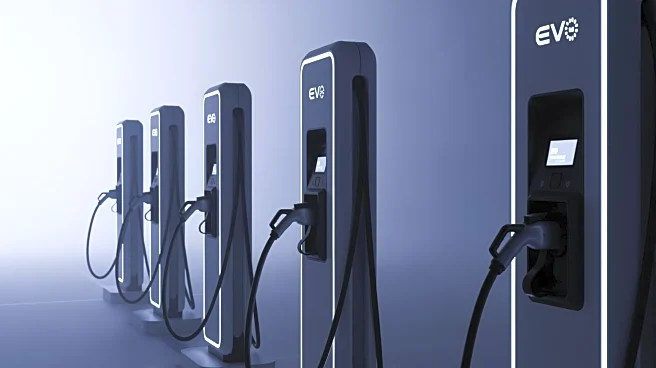What's Happening?
The U.S. electric vehicle (EV) market experienced a notable decline in sales during October, following the expiration of a federal tax credit. The Subaru Solterra, for instance, saw its sales plummet by 99 percent, with only 13 units sold in October.
This decline is part of a broader trend, as the removal of the tax credit has impacted consumer incentives to purchase EVs. The year-to-date sales for the Solterra are now down by 2.3 percent, reflecting the challenges faced by the EV market in maintaining growth without government incentives.
Why It's Important?
The drop in EV sales highlights the significant role that government incentives play in promoting the adoption of electric vehicles. The expiration of the federal tax credit has made EVs less financially attractive to consumers, potentially slowing the transition to cleaner transportation options. This development could have broader implications for the automotive industry, as manufacturers may need to adjust their strategies to sustain EV sales in a less supportive policy environment. The situation also raises questions about the future of government support for sustainable technologies and its impact on market dynamics.
What's Next?
Automakers and industry stakeholders may lobby for the reinstatement of tax credits or other incentives to boost EV sales. In the absence of such measures, companies might explore alternative strategies, such as reducing production costs or enhancing vehicle features, to attract consumers. The industry will also be watching for any policy changes that could affect the market, as well as consumer responses to the evolving landscape of EV incentives.
















